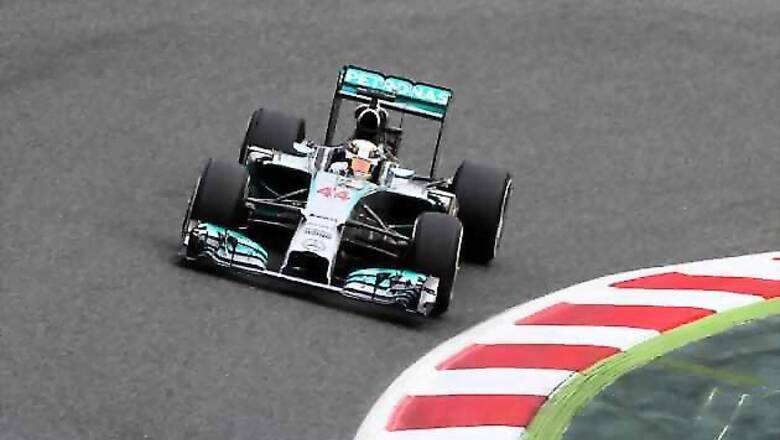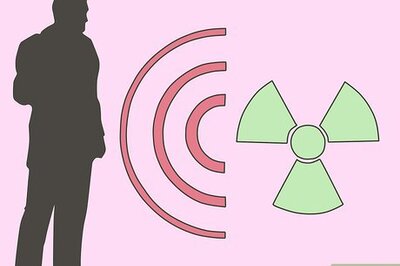
views
Mercedes may have the answer for Formula One fans longing for more engine noise in the new V6 era and they are ready to sound off about it.
The season's dominant team, runaway winners of all five races so far, will try a new 'megaphone' type exhaust at a test in Barcelona this week as the sport seeks a solution to a problem of its own making.
"I'm sure everybody is looking forward to hearing what the 'megaphone' is going to be like," Mercedes motorsport head Toto Wolff told reporters at the Spanish Grand Prix won by Lewis Hamilton - his fourth successive victory - on Sunday.
"We're pretty clear - if the fans want to have more noise, and if it's making the car not only sound better but it's perceived to be in a better and more attractive way, then we'll go for it."
The sound of the new V6 turbo hybrid engines, which have replaced the screaming old V8s this year, provided an immediate controversy when the season started in Australia in March and has divided the paddock.
Some of the race promoters, who flew in from around the world to meet in Barcelona on Saturday, have called for more noise and fear ticket sales could fall off if fans are alienated by the lack of decibels.
While Formula One's 83-year-old commercial supremo Bernie Ecclestone agrees with them, the quieter turbos also have their supporters in the paddock - particularly among the technical boffins.
They argue that increasing the noise goes against the greener spirit of the regulation change which is to reduce wasted energy from the exhaust and brakes and harness it to make the cars go faster.
"Some of what we are experiencing with respect to the noise is that it (the new power unit) does what it says on the tin: It uses less energy, and it does so more efficiently so there's less falling out of the back as noise," Renault F1 deputy managing director Rob White told.
"I don't sign up to the opinion that they sound horrible. I feel there is a positive message that has kind of got drowned out," he added.
SILLY THINGS
The old V8s had twin exhausts whereas the new V6 power unit has a sole tailpipe whose dimensions are the subject of detailed regulations.
Any change will have to be signed off by all teams before it can be implemented and that is only likely if it is clear that performance of the engine is not affected.
"As long as you don't do silly things, there may be some potential to make a modest adjustment that makes them a bit louder and sound a bit nicer without in any way compromising the fundamental objectives," said White.
"But this is F1 and there are unintended consequences to be careful of all over the place.
"My short to medium concern is that we mustn't be put in a situation where we take a performance hit relative to our competitors, directly or indirectly as a result of this subject," he added.
Renault, engine partners to champions Red Bull and three other teams, have been on the back foot since the start of the season and are fighting to catch up with Mercedes.
They have also been working with the governing International Automobile Federation (FIA) on the acoustic side while Mercedes have shared their initial results from a factory test of the 'megaphone' device.
Being Formula One, raising the volume is not that simple.
While a long device like a medieval English horn accentuates the lower frequencies, a jazz trumpet-like solution favours the higher ones. Neither are ideal when put on the back of a racing car where a millimetre can make all the difference.
Wolff, who sees the new power units and their cutting-edge technology as the way forward, suggested the fans might ultimately have to change their mindset and move with the times even if that meant other series such as GP2 or GP3 being louder.
"It's an interesting moment in time for Formula One," mused the Austrian. "Traditionally you would have said... that Formula One needs to be loud to be spectacular. Maybe now that's changing.
"Maybe the future is going to be the most powerful cars are not going to be the most noisy ones. It's about technology."




















Comments
0 comment